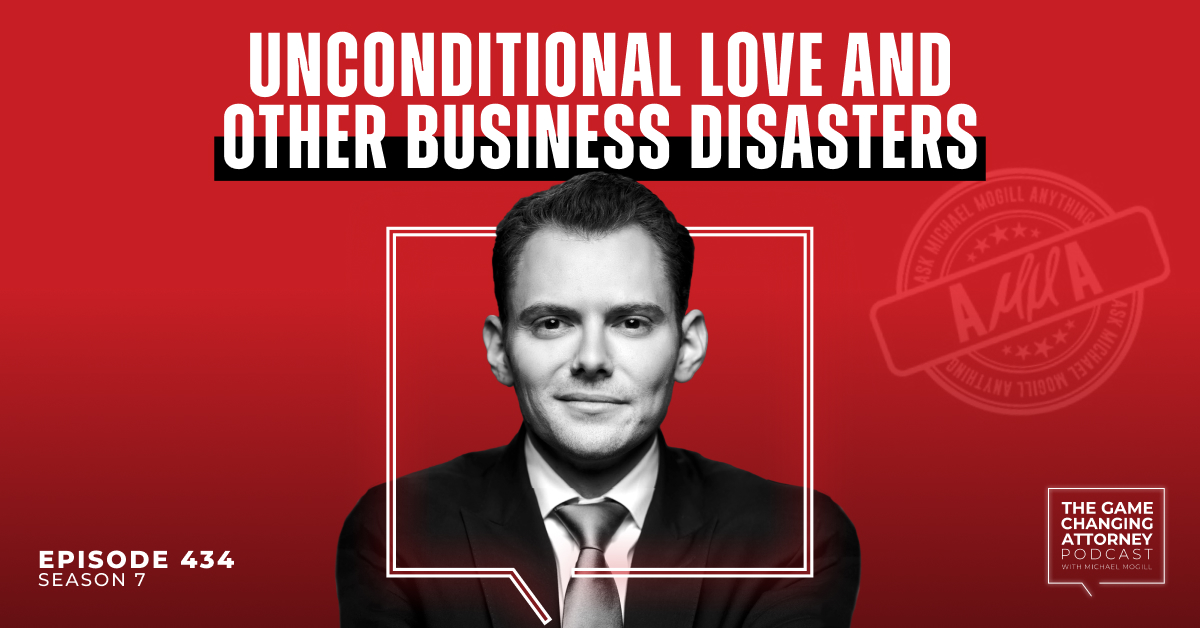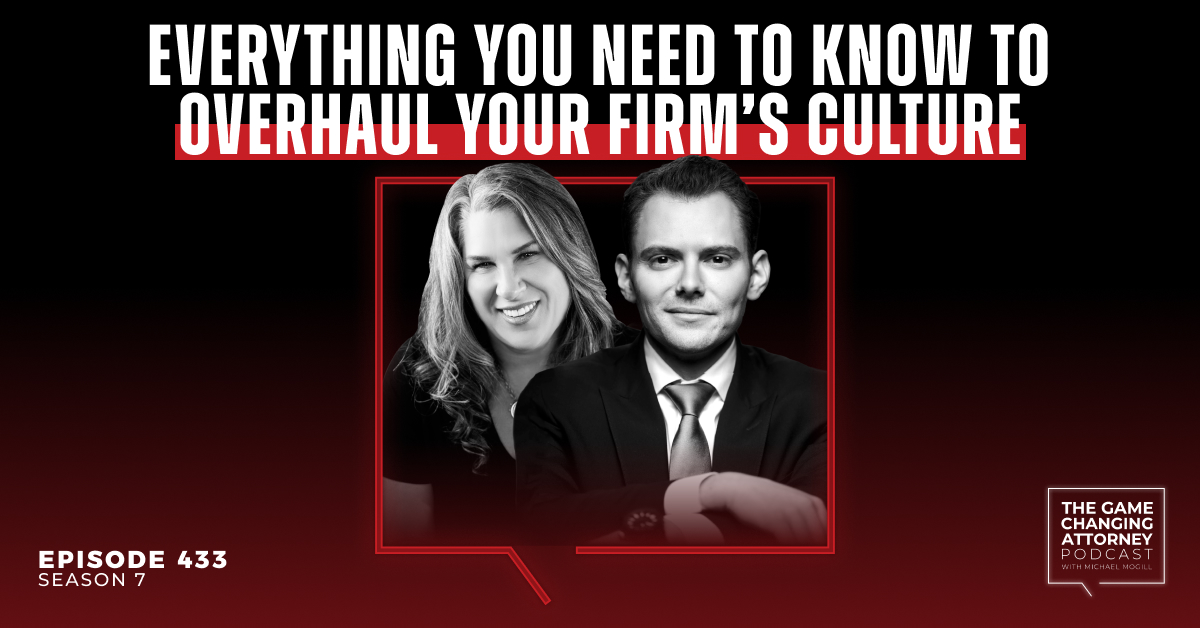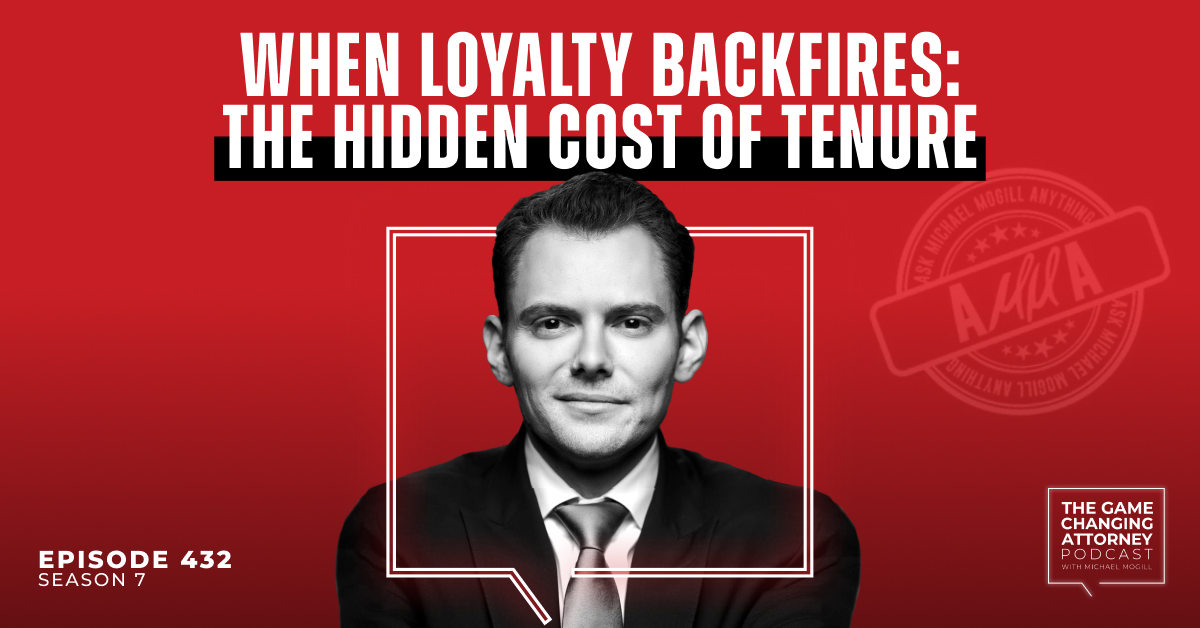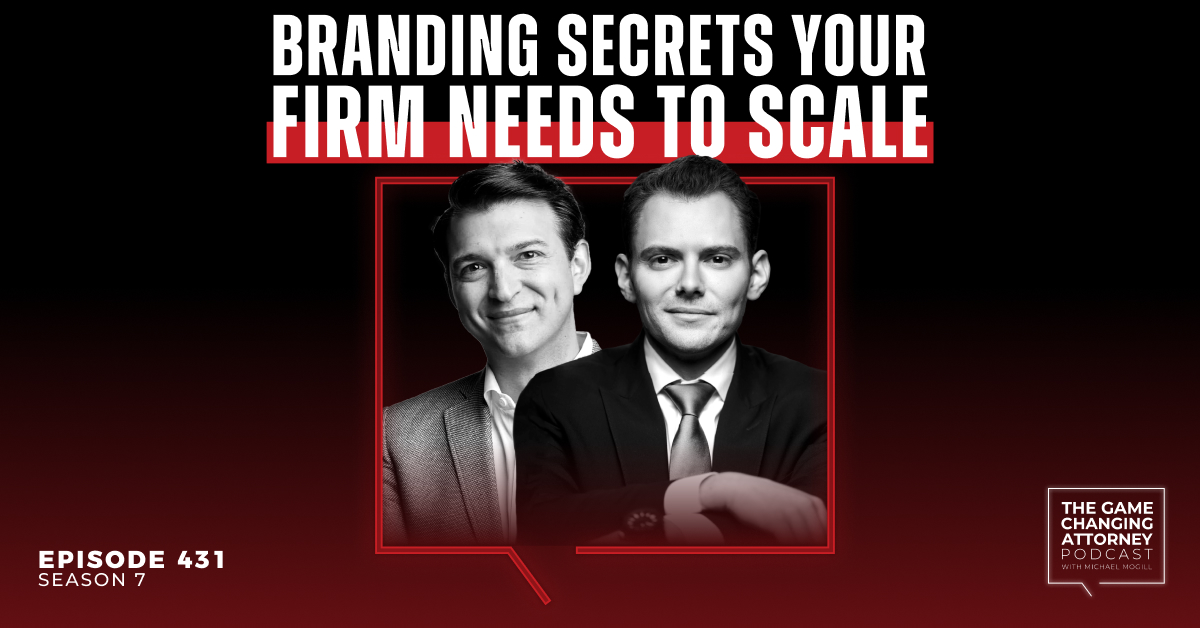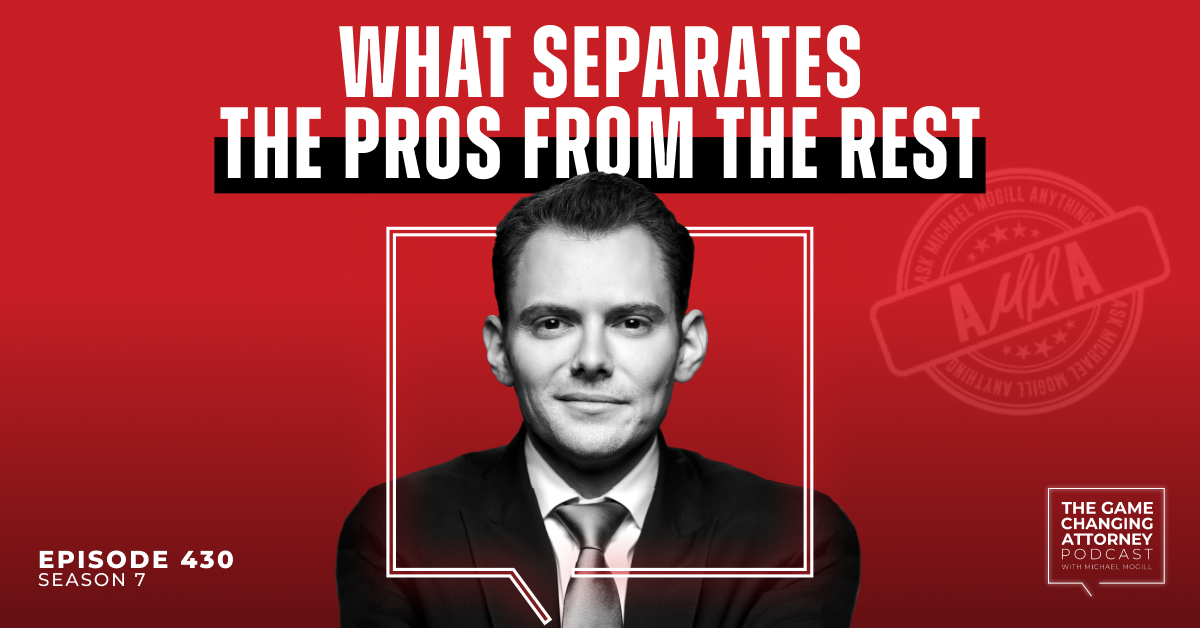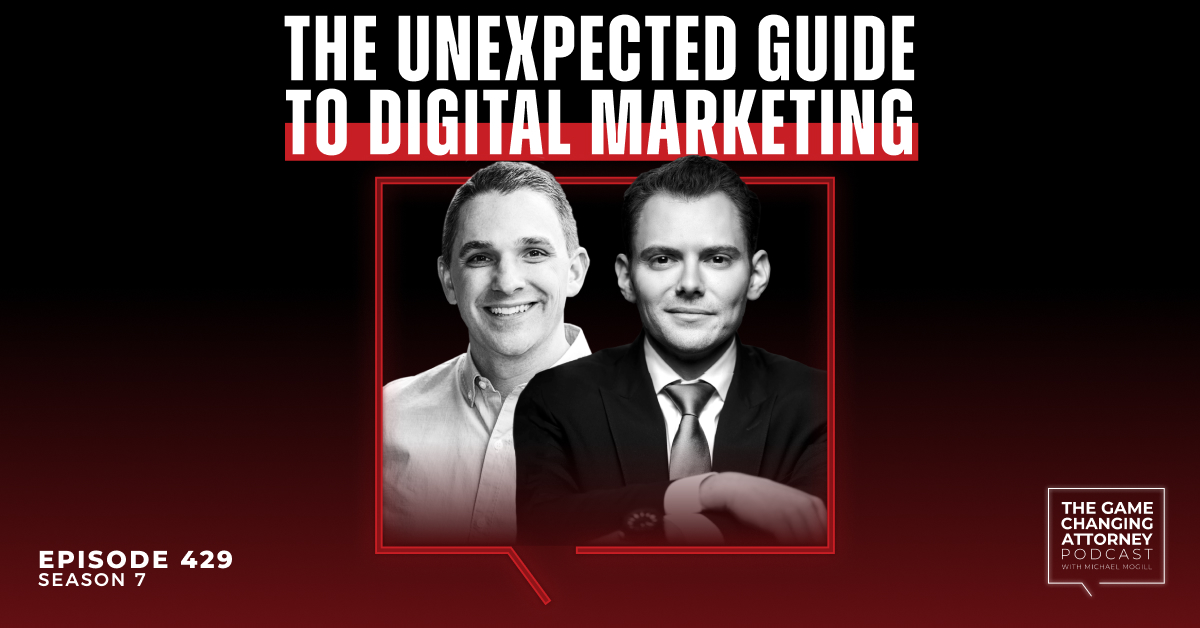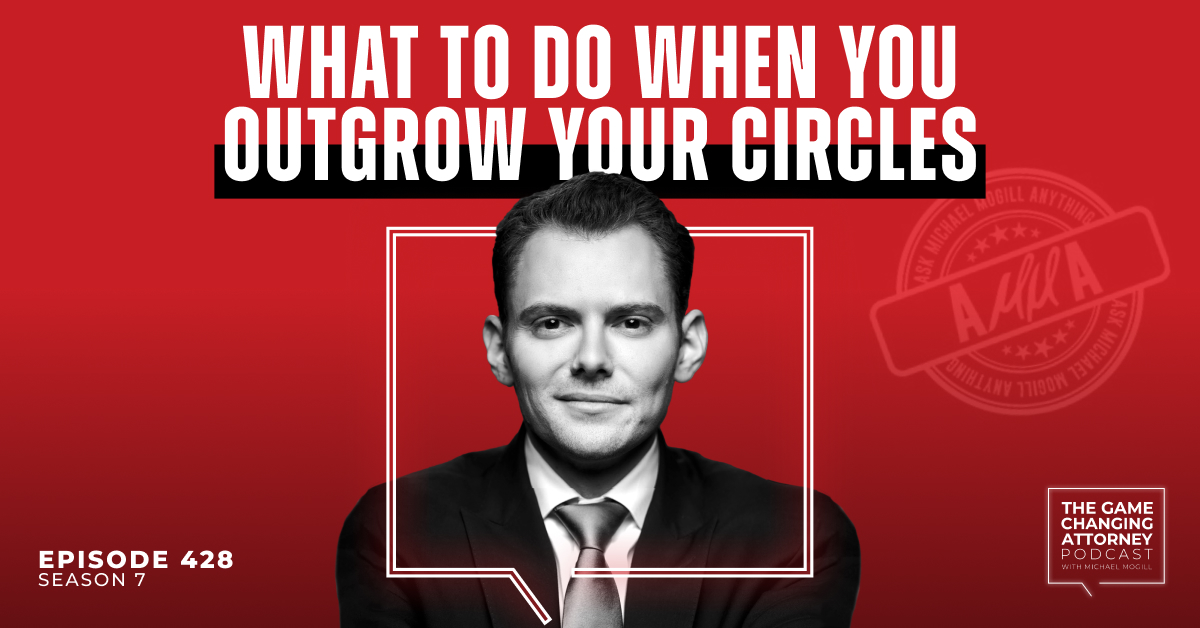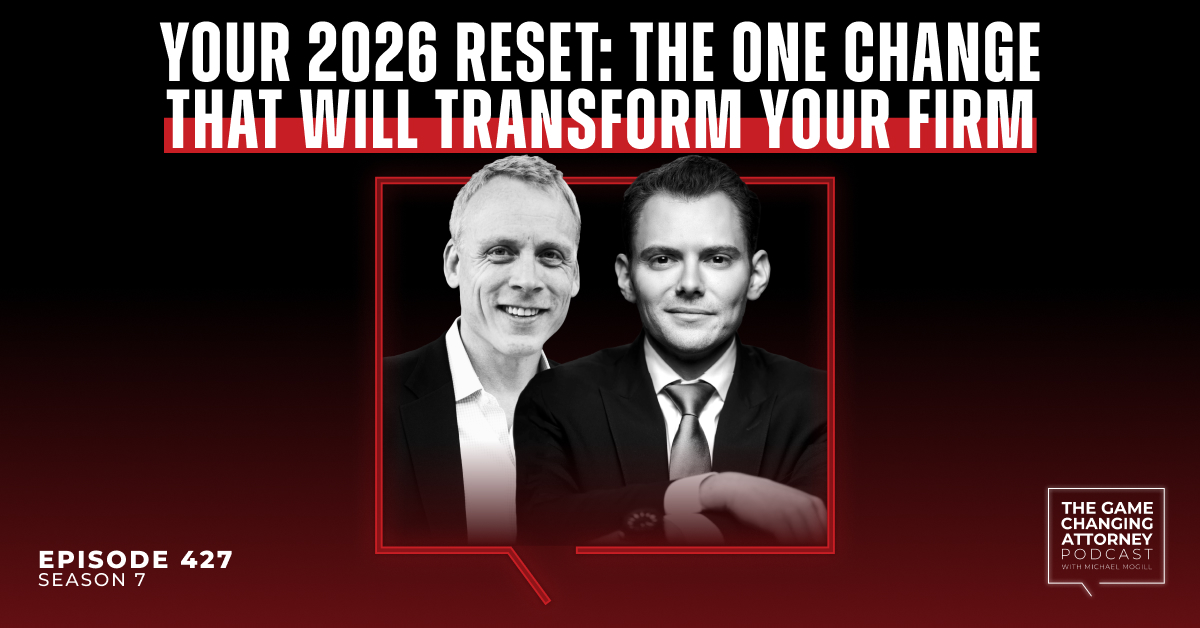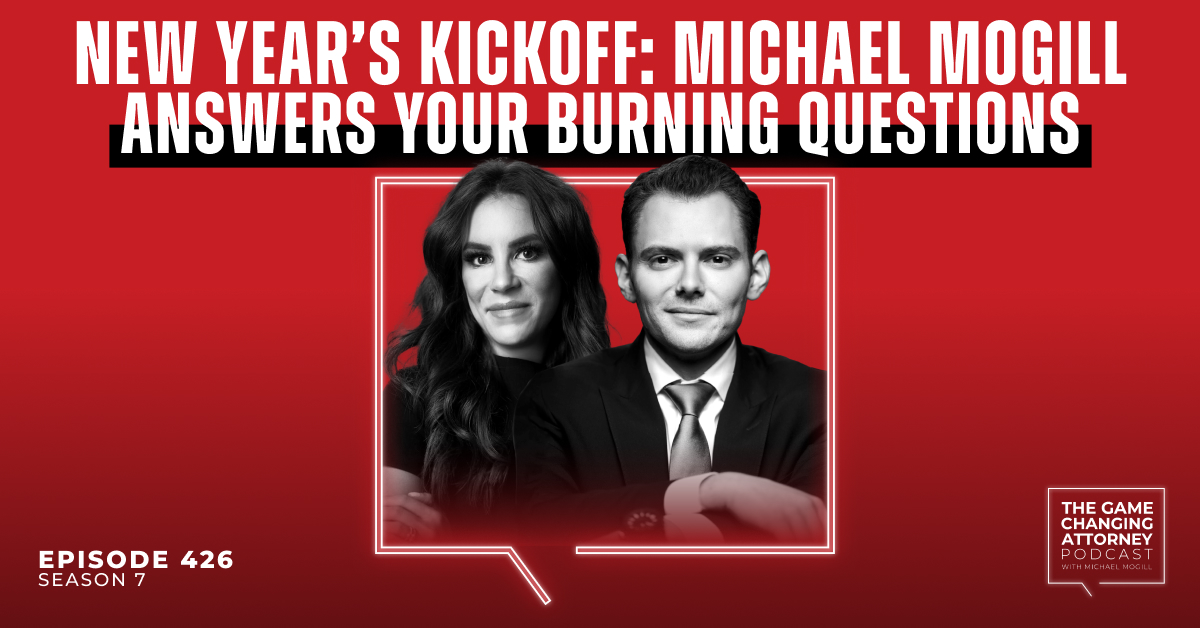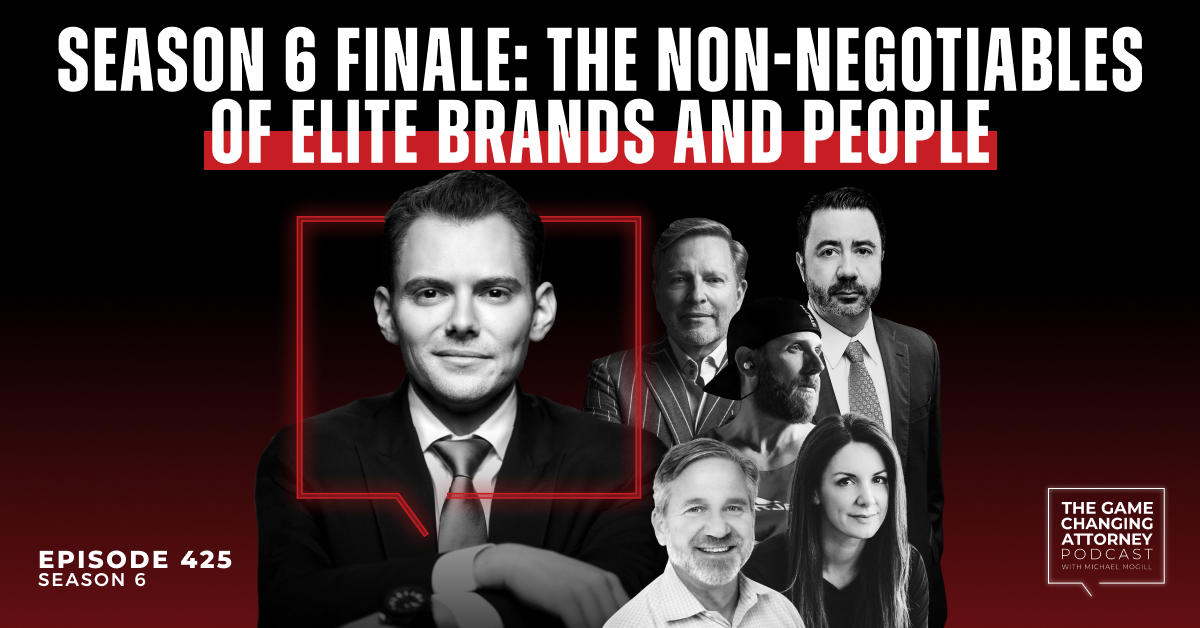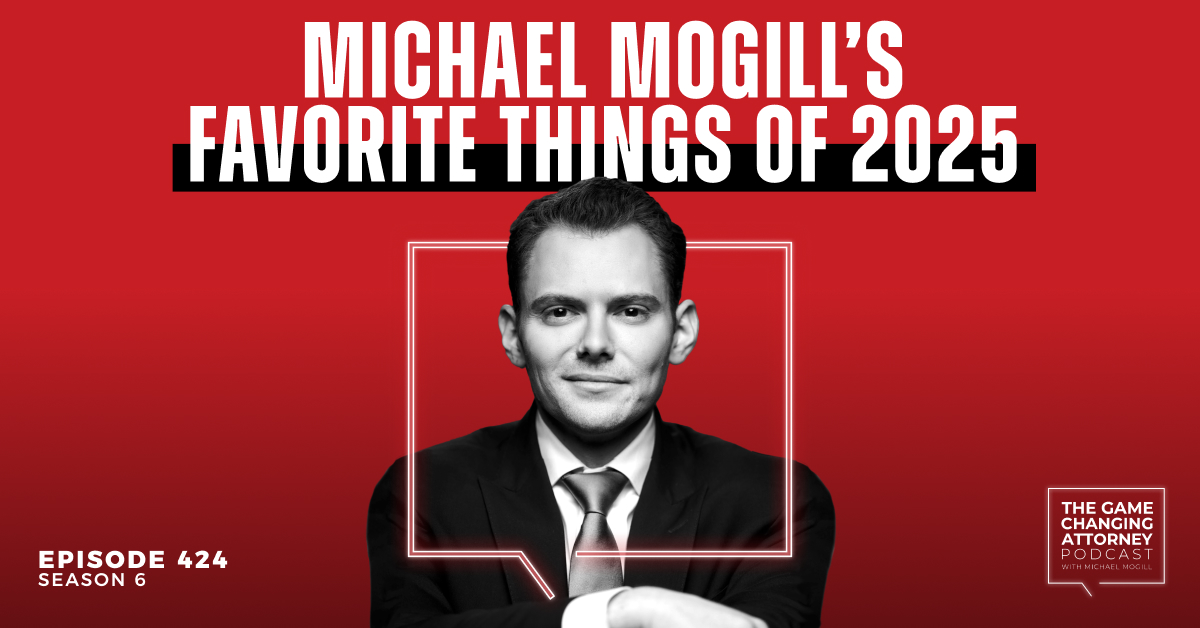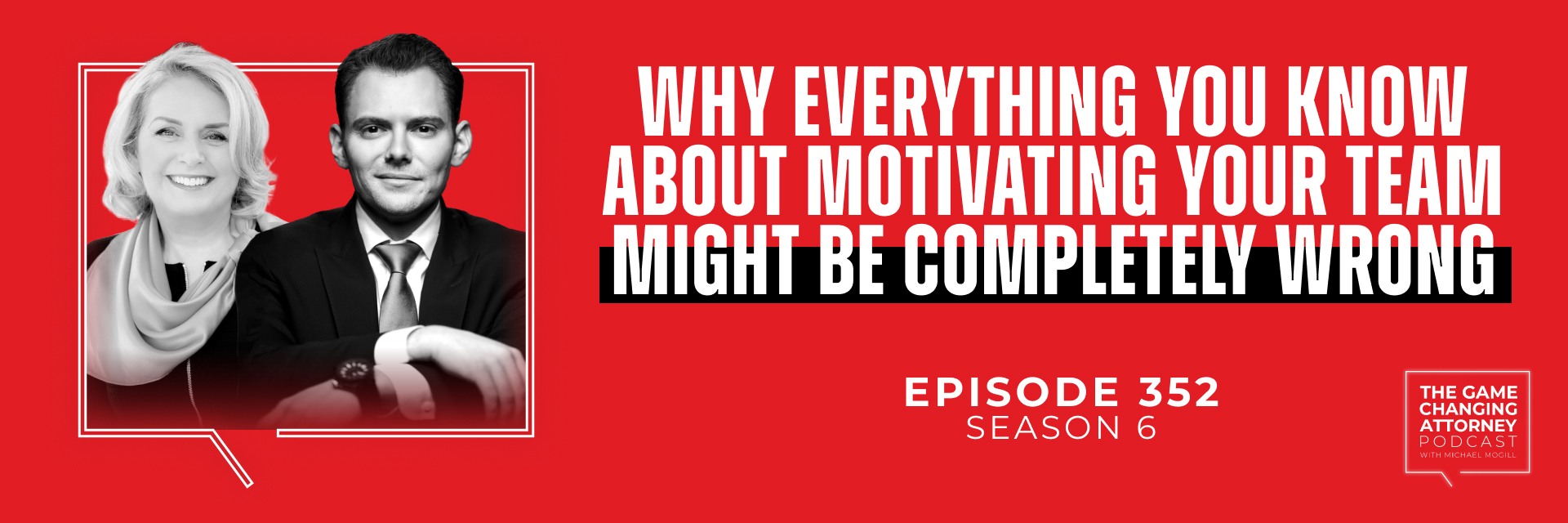

Episode 352 — Susan Fowler — Why Everything You Know About Motivating Your Team Might Be Completely Wrong
Could your firm be missing out on its true potential by relying on traditional motivation techniques?
In this episode of The Game Changing Attorney Podcast, Michael Mogill sits down with renowned motivation expert Susan Fowler to challenge the outdated paradigms of incentivization in the workplace. With insights drawn from her extensive research and real-world applications, Susan offers a fresh perspective on how law firm leaders can cultivate a genuinely motivating environment.
Here’s what you’ll learn:
- The distinction between suboptimal and optimal motivation and how quality-focused motivation leads to more sustainable and fulfilling outcomes
- The importance of supporting employees’ psychological needs: choice, connection, and competence — and how these enhance employee engagement and reduce turnover in law firms
- The significance of aligning personal and organizational values to create a thriving work environment, enabling conscious growth and long-term success for both individuals and firms
By unlocking the secrets behind psychological energy, Susan reveals how understanding the deeper layers of human motivation can lead to unprecedented growth, not just financially but also in terms of employee satisfaction and performance. Listen in to discover how you can transform your firm’s culture and drive meaningful change.
Listen & Subscribe
Show Notes:
Everyone is motivated. “We’ve always thought that motivation is something you either have or you don’t have, like a quantity. We’d ask ‘How motivated are you?’ or ‘How much motivation do you have?’ and to get someone from a low motivation level to a high motivation level led us down the road of incentives and carrots — trying to bribe people or force people or threaten people to be more motivated. The research shows that motivation is really about the quality of motivation that a person has, not the quantity. People are always motivated, but just not always in the way you’d want them to be motivated. We have to look at the quality of a person’s motivation. Once we do that, the options for what we can do to create a culture, an environment, and for ourselves changes. The way that we can look at our goals and our habits and our dreams opens up a whole new universe.”
Optimal vs. suboptimal motivation. “Most of us think of motivation as intrinsic or extrinsic, and it’s this binary choice. What is either fortunate or unfortunate is that motivation science is much more complex. Motivation science shows that there are actually six different ways of being motivated, and we group them into suboptimal and optimal rather than intrinsic and extrinsic. Suboptimal motivation is like the junk food of motivation. For example, let’s say that you’re really low energy in the middle of your day, so you eat a candy bar, or drink some coffee, or you have a Coke. Your blood sugar takes a hike and you have a burst of energy, but shortly after, it drops to a level that’s lower than where you were before you consumed it, and the cycle may repeat but it’s certainly not sustainable. The same thing is true of your psychological energy. Motivation is psychological energy. Optimal motivation is more like healthy food. It’s rare to take a piece of broccoli and go, ‘Oh, wow! This is just so fabulous.’ While the health food of motivation may not be as alluring, it is so much more powerful and sustainable, and in the end run, it’s what brings you peace, joy, and fulfillment.”
Values alignment. “A lot of law firms probably have their own set of values, and what they assume is that other people should have those same values. Everybody at a firm knows what the values of that organization are, and then we stop. There’s a difference between programmed values and developed values. We don’t say to leaders, ‘What are your values?’ and we don’t then ask individuals, ‘What are your values?’ so people are working in an organization that has values, but without a clear understanding of what their own are. I can tell you what your values are by asking you to tell me two things: ‘Tell me how you spend your money,’ and ‘Tell me how you spend your time.’ Let’s say that you tell me, ‘My family is really my priority,’ but if you’re spending 90 hours a week working and you resent having to take your kids to school, or pick them up from school, or don’t have time for dinner, or miss their soccer games and recitals — then saying that you value family is just bull. That’s not what you value. If you tell me that you’re compassionate and that you’re generous and that you care about others who are less fortunate than you, and I look at how you spend your money and I don’t see a percentage of that money going to people in need or helping others who are less fortunate than you, or if you’re not spending any time volunteering, then you don’t really value generosity. I would encourage leaders to really get their own values in line and then have those conversations with the people they lead because otherwise connection is really a challenge.”
Learning environments. “In effective goal setting, monitoring progress is really critical. You must give people a chance to get better by making training and development a focus in the organization. We talk about learning organizations and how everybody wants to have a learning organization, yet how do you feel if you’re a leader and you walk into someone’s office and they’re reading a magazine or watching a video on YouTube? You’d probably say, ‘Oh, you’re not working.’ What if they’re actually learning? Do we actually give people the space to not feel guilty about learning while they’re working? I would just ask leaders to think about what are the ways that we give people an opportunity to gain competence. Sometimes that means allowing them to fail. It changes the whole culture that it’s a learning culture that we’re constantly learning, even from our failures. I would encourage leaders to think about how they and their teams handle mistakes and failures. Those are the learning moments to build competence.”
The “why” behind the money. “People often ask me if money motivates people. Yes, of course it does, but the question is why? If you’re motivated by money because you want it for a bunch of external reasons — you want to buy the flashy car or you want to be seen as successful and have the prestige and the status that comes from a lot of money — then that’s suboptimal motivation. If you are wanting the money for family or for a cause that you are passionate about, that’s very different. Then it’s not really about the money. It’s really more about the family or the case. We need to make money the byproduct. Just like in business, profit is not the goal. If profit is the goal, you’re probably not going to get the profit. It’s like being an athlete watching the scoreboard all the time instead of actually playing the game. Profit is a byproduct of doing what you do well and having a culture that creates excellence.”
For/from your team. “One of my favorite things to do when I’m in front of a large group of leaders is to ask them ‘What do you want from your people?’ They all talk about productivity and things like that, but then I ask, ‘What do you want for your people?’ What’s interesting is that they come up with the same things that you might want for your children. You want them to feel a sense of joy and not be afraid. You want them to have a home to feel financially secure. There’s so much external motivation and pressure in the legal industry — billable hours, prestige clients, winning no matter what — and it’s an unhealthy environment. I think what you have to think about is that if you look at the most successful people, they’re not the people who have won at all costs. They’re not people who say the means justify the ends. That the way we go about achieving our goals is just as important as the goals themselves.”
What does being a game changer mean to you? “The name of the game is evolution. We’re constantly evolving. The question is, are we evolving consciously? Is it a conscious transformation? Is it a transformation towards something better and good and that brings peace and joy to people? Being a game changer means that you master that in your own life first, and then interacting with an individual and realizing that you contributed to their well being, you’ve contributed to their thriving, and haven’t diminished it in any way.”
- Why Motivating People Doesn’t Work… and What Does by Susan Fowler
- YouTube
- B.F. Skinner
- Operant Conditioning
- Master Your Motivation: Three Scientific Truths for Achieving Your Goals by Susan Fowler
- Self-determination theory
- Dr. Edward Deci
- Dr. Richard Ryan
- IBM
- Garry Ridge
- Dr. Jacques Forest
- Drea Zigarmi
- Mark Cuban
- Anne Brafford
- The Prevalence of Substance Use and Other Mental Health Concerns Among American Attorneys
- Binge Drinking by Occupation Groups among Currently Employed U.S. Adults
- 2022 Report on the State of the Legal Market: Despite a strong year, numerous & growing challenges confront law firms
- Institute For Well-Being In Law
- McKinsey & Company: Winning back your workers
Connect with Michael
- Text directly at 404-531-7691
